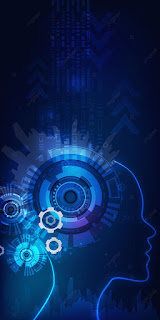The Impact of Artificial Intelligence on the Job Market
The Impact of Artificial Intelligence on the Job Market
Introduction:
Artificial Intelligence (AI) has transformed industries worldwide and revolutionized the way we work, communicate and live. Artificial intelligence offers huge opportunities for innovation and efficiency, but also raises concerns about its impact on the labor market. As AI technologies evolve rapidly, it is important to examine how they are shaping the employment landscape and how individuals and industries can adapt to these changes.
Redefining Job Roles:
One of the important effects of artificial intelligence on the labor market is the redefinition of work tasks. Repetitive, rule-based or data-driven tasks are increasingly automated, leading to the relocation of certain jobs. However, this does not necessarily mean a net loss of jobs, but rather a change in the nature of work. As routine tasks become automated, new roles are emerging that focus on tasks that require human creativity, emotional intelligence, critical thinking and problem-solving skills.
Upskilling and Reskilling:
To succeed in an AI-driven job market, people must embrace lifelong learning and continuous skill development. Upskilling and retraining initiatives are becoming essential for employees and job seekers to remain relevant and competitive. Investing in training programs that emphasize skills like coding, data analysis, machine learning, and human-centered skills like empathy and adaptability can help people navigate the evolving job market.
Shift in Job Demands:
Artificial intelligence is not only changing existing jobs, but also creating entirely new job opportunities. Roles such as AI ethicists, data scientists, AI educators and automation experts are in high demand as organizations seek expertise in responsible implementation and management of AI technologies. Additionally, AI will enhance human skills across industries, leading to hybrid roles where technical expertise is combined with industry-specific knowledge.
Impact on Industries:
The impact of AI on the labor market varies by industry. While some sectors are experiencing major disruption due to automation, others are witnessing the rise of human labor through AI technologies. For example, industries such as manufacturing, transportation and customer service are experiencing major changes with the introduction of robotics, autonomous vehicles and chatbots. On the other hand, industries such as healthcare, finance and education will benefit from AI-based innovations that improve productivity, decision-making and customer experience while creating new job opportunities.
Addressing Workforce Challenges:
As AI continues to shape the labor market, the challenge for policymakers, businesses and educational institutions is to ensure a smooth transition into the workforce. Collaboration is needed to develop policies and programs that support displaced workers, promote inclusive growth and foster an environment conducive to lifelong learning and skills development. In addition, initiatives such as universal basic income and retraining programs can mitigate the negative effects of AI-driven job displacement and promote economic stability.




Very informative
ReplyDeleteThank you for this information.
ReplyDeletevery informative blog
ReplyDelete